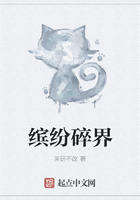Thus Florence found herself deprived of both her tyrant and her dominions at the same moment, and in recovering her liberty, taught her subjects how they might become free. The duke being expelled and the territories lost, the fourteen citizens and the bishop thought it would be better to act kindly toward their subjects in peace, than to make them enemies by war, and to show a desire that their subjects should be free as well as themselves. They therefore sent ambassadors to the people of Arezzo, to renounce all dominion over that city, and to enter into a treaty with them; to the end that as they could not retain them as subjects, they might make use of them as friends. They also, in the best manner they were able, agreed with the other places that they should retain their freedom, and that, being free, they might mutually assist each other in the preservation of their liberties. This prudent course was attended with a most favorable result; for Arezzo, not many years afterward, returned to the Florentine rule, and the other places, in the course of a few months, returned to their former obedience. Thus it frequently occurs that we sooner attain our ends by a seeming indifferent to them, than by more obstinate pursuit.
Having settled external affairs, they now turned to the consideration of those within the city; and after some altercation between the nobility and the people, it was arranged that the nobility should form one-third of the Signory and fill one-half of the other offices. The city was, as we have before shown, divided into sixths; and hence there would be six signors, one for each sixth, except when, from some more than ordinary cause, there had been twelve or thirteen created;but when this had occurred they were again soon reduced to six. It now seemed desirable to make an alteration in this respect, as well because the sixths were not properly divided, as that, wishing to give their proportion to the great, it became desirable to increase the number. They therefore divided the city into quarters, and for each created three signors. They abolished the office of Gonfalonier of Justice, and also the Gonfaloniers of the companies of the people; and instead of the twelve Buonuomini, or good men, created eight counsellors, four from each party. The government having been established in this manner, the city might have been in repose if the great had been content to live in that moderation which civil society requires. But they produced a contrary result, for those out of office would not conduct themselves as citizens, and those who were in government wished to be lords, so that every day furnished some new instance of their insolence and pride. These things were very grievous to the people, and they began to regret that for one tyrant put down, there had sprung up a thousand. The arrogance of one party and the anger of the other rose to such a degree, that the heads of the people complained to the bishop of the improper conduct of the nobility, and what unfit associates they had become for the people; and begged he would endeavor to induce them to be content with their share of administration in the other offices, and leave the magistracy of the Signory wholly to themselves.
The bishop was naturally a well-meaning man, but his want of firmness rendered him easily influenced. Hence, at the instance of his associates, he at first favored the duke of Athens, and afterward, by the advice of other citizens, conspired against him. At the reformation of the government, he had favored the nobility, and now he appeared to incline toward the people, moved by the reasons which they had advanced. Thinking to find in others the same instability of purpose, he endeavored to effect an amicable arrangement. With this design he called together the fourteen who were yet in office, and in the best terms he could imagine advised them to give up the Signory to the people, in order to secure the peace of the city; and assured them that if they refused, ruin would most probably be the result.
This discourse excited the anger of the nobility to the highest pitch, and Ridolfo de' Bardi reproved him in unmeasured terms as a man of little faith; reminding him of his friendship for the duke, to prove the duplicity of his present conduct, and saying, that in driving him away he had acted the part of a traitor. He concluded by telling him, that the honors they had acquired at their own peril, they would at their own peril defend. They then left the bishop, and in great wrath, informed their associates in the government, and all the families of the nobility, of what had been done. The people also expressed their thoughts to each other, and as the nobility made preparations for the defense of their signors, they determined not to wait till they had perfected their arrangements; and therefore, being armed, hastened to the palace, shouting, as they went along, that the nobility must give up their share in the government.
The uproar and excitement were astonishing. The Signors of the nobility found themselves abandoned; for their friends, seeing all the people in arms, did not dare to rise in their defense, but each kept within his own house. The Signors of the people endeavored to abate the excitement of the multitude, by affirming their associates to be good and moderate men; but, not succeeding in their attempt, to avoid a greater evil, sent them home to their houses, whither they were with difficulty conducted. The nobility having left the palace, the office of the four councillors was taken from their party, and conferred upon twelve of the people. To the eight signors who remained, a Gonfalonier of Justice was added, and sixteen Gonfaloniers of the companies of the people; and the council was so reformed, that the government remained wholly in the hands of the popular party.















